Taiwan Tech outstanding students bring Tech Education home with 3D Printed “Food” Showcases.
The students from Taiwan Tech's “Outstanding Technical and Vocational Talent Program” (referred to as the Technical Program) utilized their summer break to give back to their hometown. They chose National Yuli Senior High School in Hualien as their service venue, integrating emerging technology with local culture. They assisted the school’s teachers, students, and Hualien residents in using computer graphics and 3D printing to create practical food molds, embodying the spirit of “maker education”. The event gathered diverse groups, including Hakka, Indigenous peoples, new immigrants, and other diverse ethnic groups, fostering learning and integration. Over two days, the maker activities provided Hualien with a “3D Printing Practical Feast”.
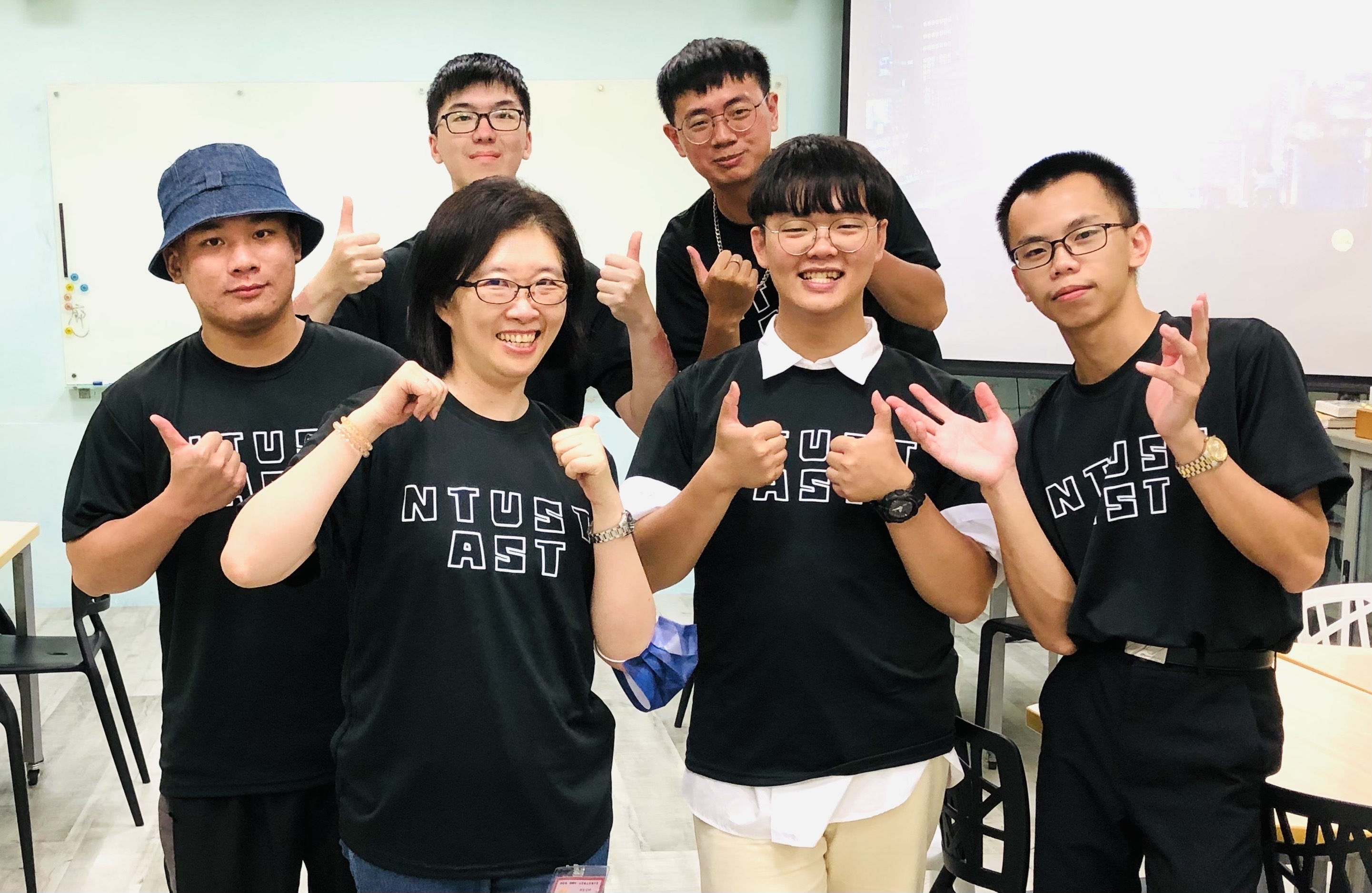
A group photo of the “Maker Spirit - Rural Outreach” USR volunteer team. In the front row, from the left are Assistant Professor Jia-Wen Hu from Taiwan Tech, student lecturers You-Hsuan Liao and Li-Qi Zhang from Bachelor Degree Program of Applied Science and Technology. In the back row, from left are teaching Assistants Kai-Xun Zhang, Qing-Feng Liu, and Bo-Wei Huang.
Many outstanding students at Taiwan Tech come from rural areas and have a deep connection to their hometowns. After Hualien faced earthquakes and storms, they were eager to give back the knowledge they had learned to their hometowns. Motivated by this, they voluntarily proposed volunteering services in Hualien. After four months of planning and discussion with National Yuli Senior High School, Taiwan Tech formed a USR volunteer team consisting of five students and one teacher. The students, with diverse skills in electronics, mechanical drawing, and collaborative creation, guided National Yuli Senior High School’s teachers and students in using 3D printing to produce food molds incorporating local characteristics.
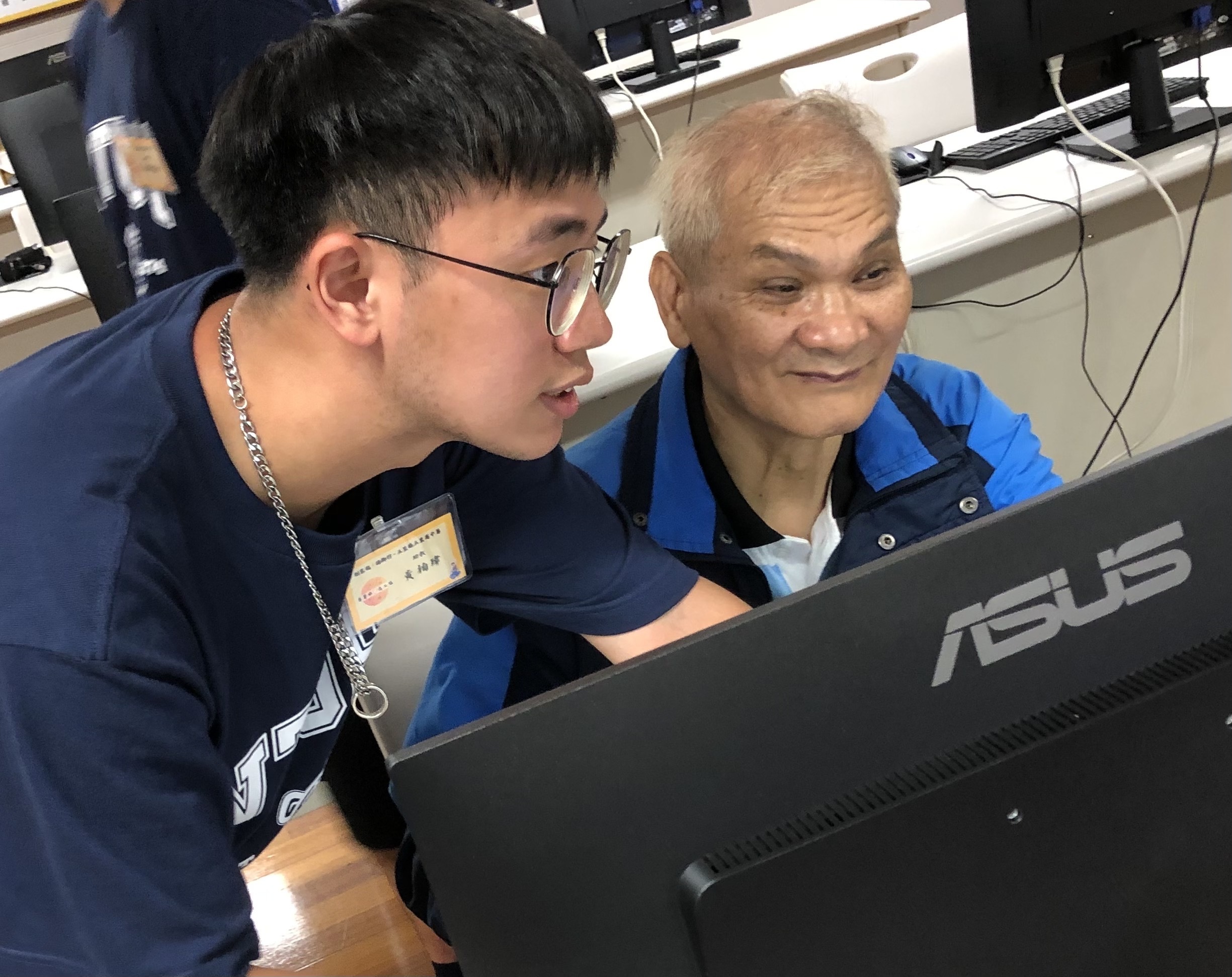
Teaching assistant Bo-Wei Huang (left) guides participants in computer graphic design.
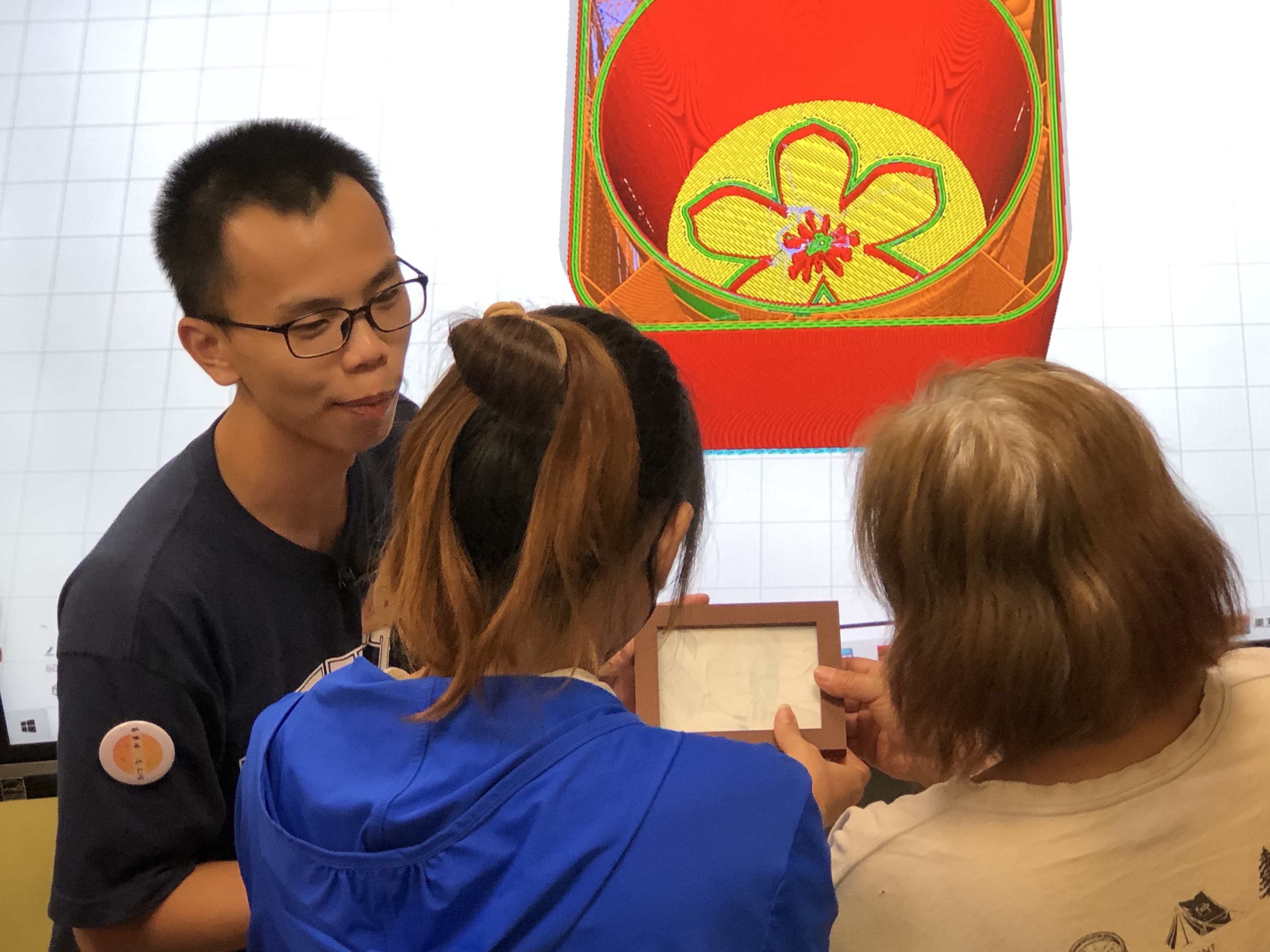
Student lecturer Li-Qi Zhang (first from left) assists participants with 3D modeling.
The outstanding students led all aspects of the course design, machine setup, testing, computer graphics, and 3D printing instruction. Over the two-day event, CAD mechanical design competitor and Taiwan Tech student You-Hsuan Liao guided National Yuli Senior High School students, with no prior knowledge, in designing local symbols like day lilies and tung flowers using templates and modular techniques. Teaching assistants then helped with 3D modeling. Electronics assembly student Li-Qi Zhang explained 3D printing principles and guided students step by step in mold creation. The students used their custom molds to make a local delicacy, honey-scented black tea jelly.
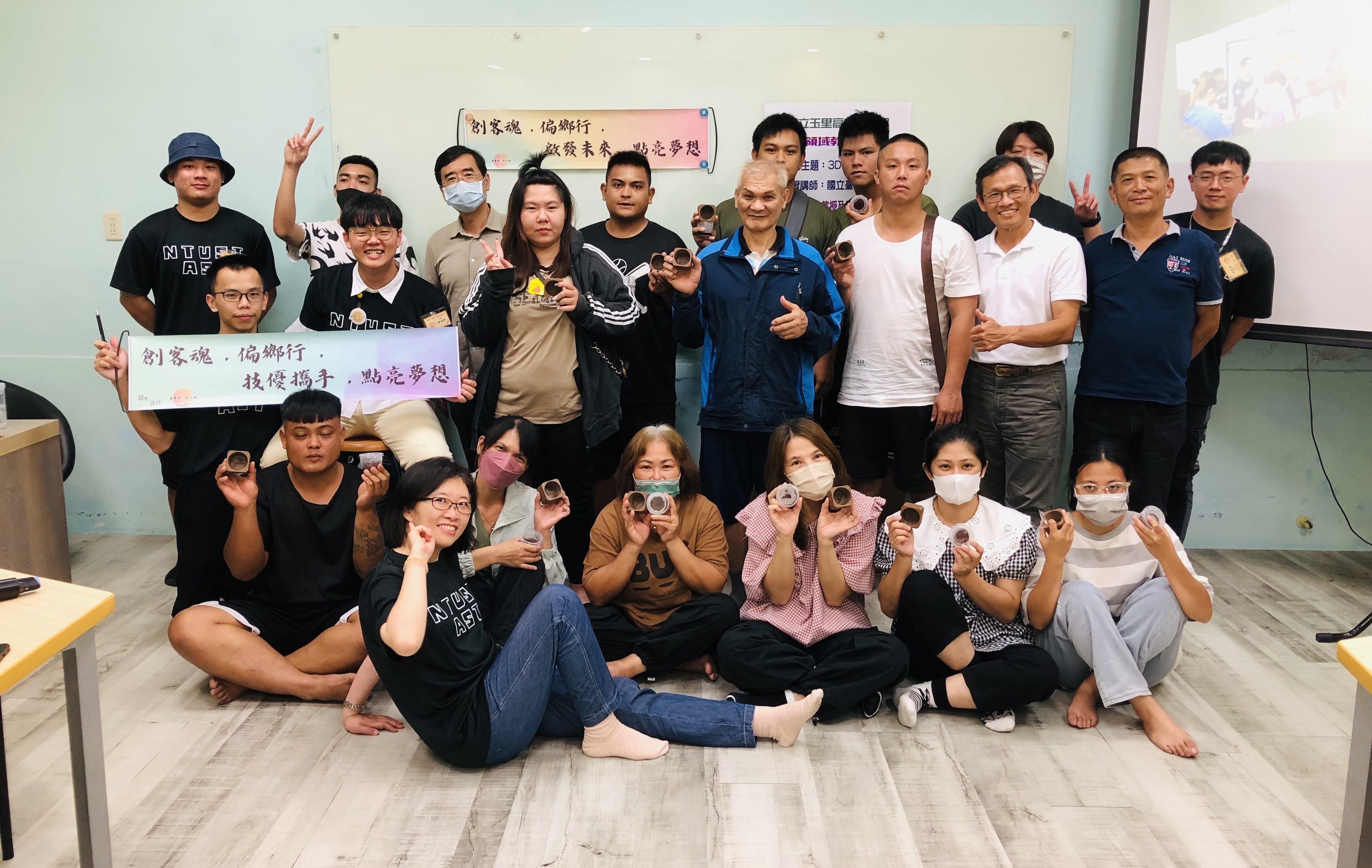
The participants took photos happily holding homemade gourmet molds.
Piao-Er Chen, a teacher at the Department of Continuing Education of National Yuli Senior High School cheerfully noted, “Our students range from 18 to 78 years old. With the help of the Taiwan Tech teachers, everyone was able to complete their projects. The sense of accomplishment was wonderful!” The event also included 3D application quizzes, board games, and hands-on experiences like mold cooling, creatively integrating theory with practice and local culture, so that participating teachers, students, and the public can gain a lot. This sparked new ideas among the teachers at National Yuli Senior High School, who explored the potential of 3D printing for teaching aids and the design of cultural and creative products with Taiwan Tech’s student teachers.
You-Hsuan Liao from Tawian Tech shared, “When I was having a hard time as a contestant, my grandmother would make snacks to encourage me”. He hoped to use food to encourage Hualien’s residents. Li-Qi Zhang mentioned that although he was initially nervous while preparing, “The warmth of the people in Hualien made me feel like I was just chatting with neighbors, so I relaxed!”
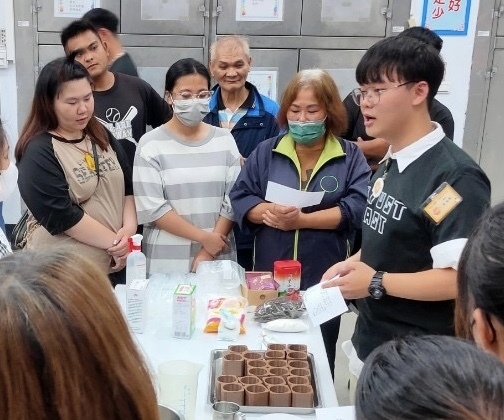
Student lecturer You-Hsuan Liao explains the application of the molds.
Leading teacher Jia-Wen Hu stated that the “Maker Spirit - Rural Outreach” is a technology education project of Taiwan Tech's Applied Science Program. The activity design allows outstanding students to engage deeply in their preparation, take on responsibilities, and practice the UN Sustainable Development Goal (SDG) “No one left behind” by applying and popularizing technology education to bridge the digital divide between urban and rural areas.
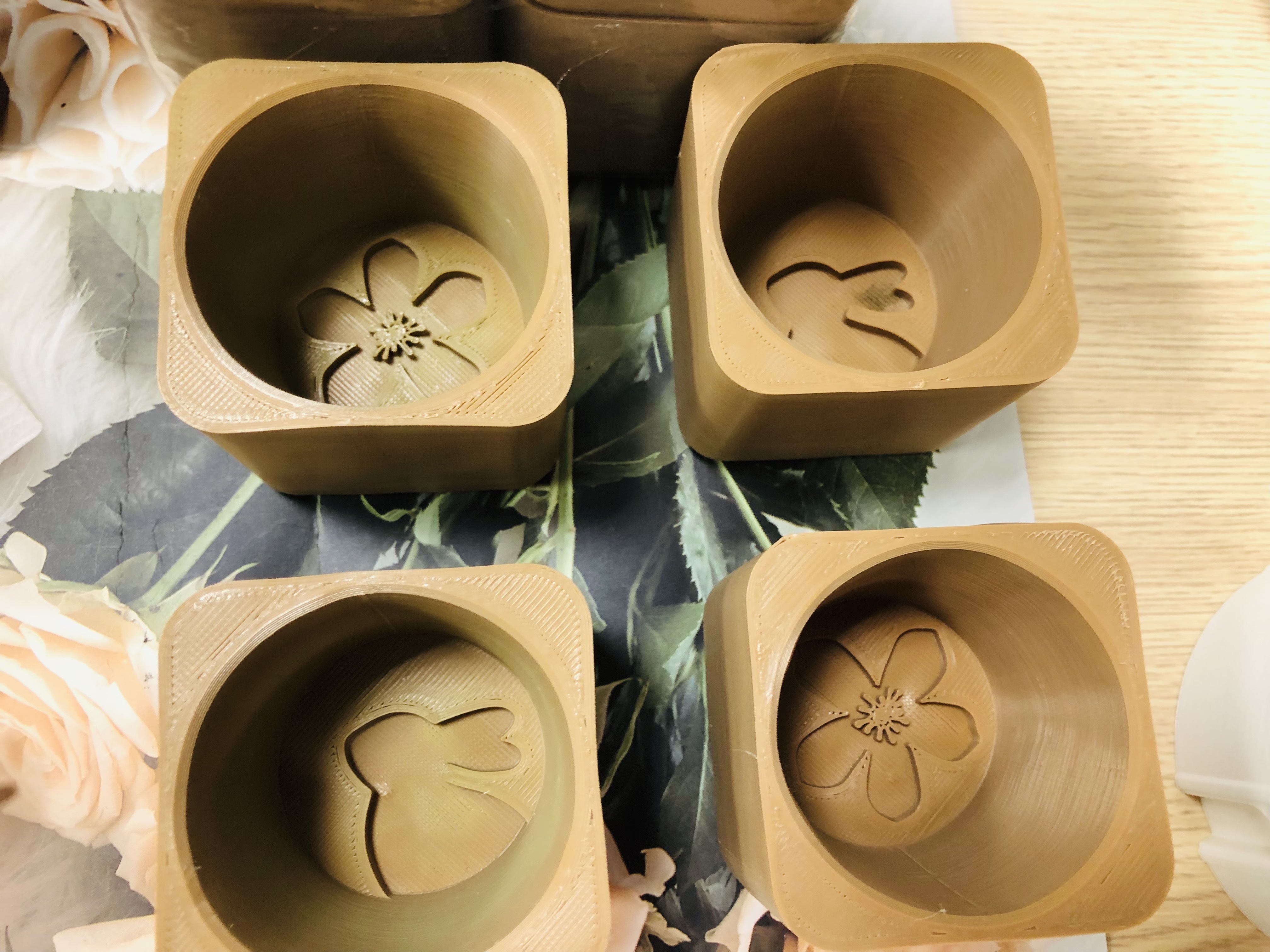
Participants designed tung flower and jade rabbit patterns themselves and used 3D printing technology to create food molds.
Taiwan Tech will continue to foster connections between campus and society through various USR programs, encouraging more students to engage in rural service. The aim is to deepen the integration of technology and education in more areas, contributing further to Taiwan's development.
